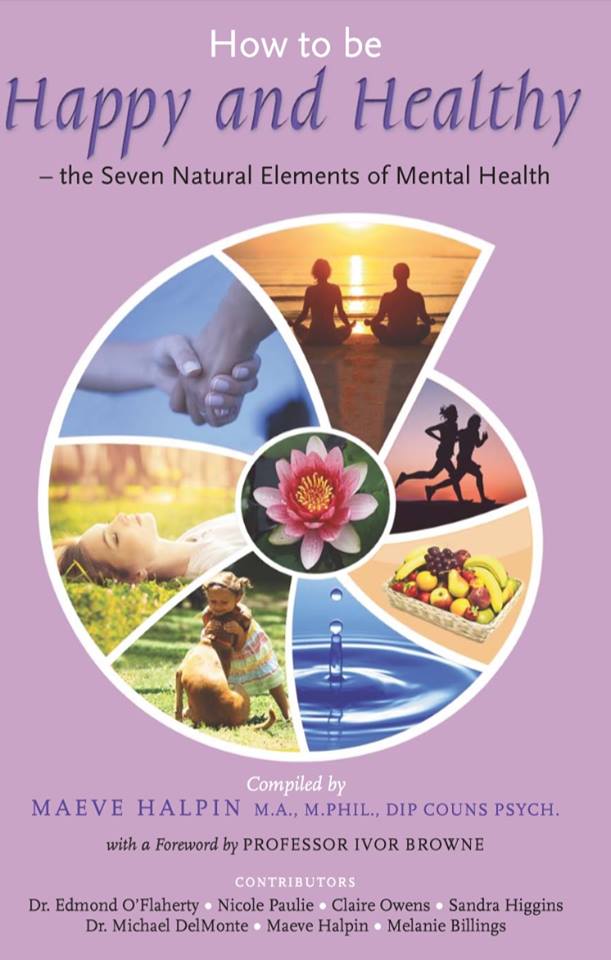How to be Healthy and Happy: The Seven Natural Elements of Mental Health was launched in Hodges Figgis on 10th July 2014. See here for my speech on the power of compassion for the individuals of all species, not just humans. See also Professor Ivor Browne’s commendation on my chapter on compassion.
Compassion is necessary because life is difficult. Every living being suffers. From the moment of birth we have obstacles to overcome in order to survive. Everyone makes mistakes. Experiences of disappointment, loss, sadness, grief, anger and fear are universal. Few of us go through life without losing those we love. Everyone risks suffering from serious injury and illness and everyone faces the prospect of death.
For animal rights activists life in a speciesist, non-vegan world is very difficult. We live amidst mass denial and yet we ourselves are constantly exposed, vicariously, to the truth of the trauma of other animals. Our distress as we bear witness to their suffering is, at times, unbearable. We are conscious of the harm that other humans endure through climate change, horrific working conditions, and world hunger; harm that is directly attributable to the exploitation of other animals and that could be immediately relieved by veganism. We are a minority group facing an uphill battle to facilitate other’s insight into the consequences of their actions on other animals, other humans and on the planet. We face social discrimination and it can even be difficult to find employment that fits with our ethical values. Some of us have experienced arrest or imprisonment for attempting to alleviate the desperate suffering of others. Some of us have lost friends because of our views and our passion. We can feel isolated, angry, sad, and overwhelmed.
There is nothing wrong with you because you suffer.
There is something wrong with the speciesist society you live in.
Compassion appears to be innate but it is something we lose as we grow up in an uncaring world and in capitalist societies. The good news is that compassion is also a skill that can be learned and strengthened with practice. Compassion cannot eliminate suffering but it helps us to bear it with courage and equanimity. Other animals need us to learn the skill of compassion so that our activism for justice for them attracts rather than deters others and sustains and fulfills us, rather than causing us to burn out.
If you are not already vegan, then practicing self-compassion and the exercises recommended in this chapter that awaken and enhance our compassion for others, might help you to make the transition to a kinder way of living.
Cultivating compassion at the pivotal point where the individual meets the universal is the most imperative task of humanity. There is a memorable scene in the film Elephant Man, in which John Hurt, playing David Merrick cries out:
“I am not an elephant. I am not an animal. I am a human being.”
But we are animals. Animals feel. The first step in compassion is non judgemental acceptance of our own sentience as well as the sentience of other animals.
One of the most powerful and effective practices used recently in clinical intervention and for thousands of years in Eastern cultures in the general population is Loving Kindness meditation. The practice of LKM can be very useful when vegan education and animal rights activism are difficult, or when living in a speciesist world hurts us as well as other animals.
However, even within Eastern cultures and clinical practice, the practice of Loving Kindness meditation is not fully realised or adhered to. At its root compassion involves the ability to be consciously aware of suffering and the motivation to act to alleviate it. Suffering that is ignored or denied cannot be soothed or alleviated. It is impossible to become compassionate without extending compassion equally to the hundreds of billions of sentient beings who are harmed and killed for us every year, as well as to everyone and everything affected by the intersectional issues that have their root cause in the exploitation of other animals.
It is not enough to be aware that other animals suffer. They need us to act to alleviate their suffering. In the words of Thich Nhat Hanh ‘compassion is a verb’. The non-violent philosophy of veganism is compassion in action. It is the expression of Ahimsa.
We begin to be compassionate to all sentient beings when we become consciously aware of the impact of our behaviours on other lives and when we adopt a vegan lifestyle in order to minimise the harm we inflict on them.
Compassionate living changes our psychological makeup, spreading kindness, tolerance and justice from one generation to the next.
It can dramatically affect the outcome of our evolution.
It can literally change the world.

